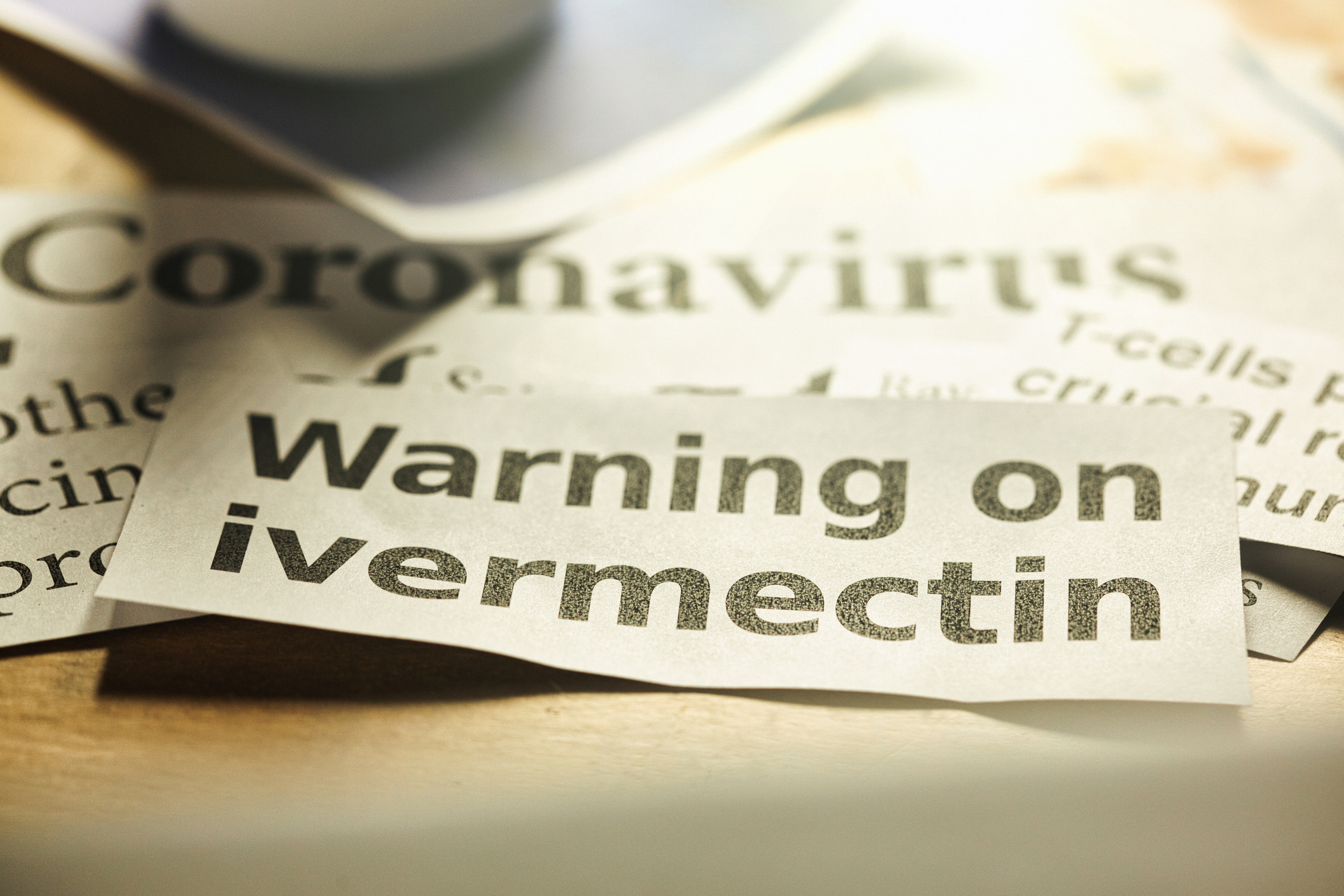The following is the second in a series of articles about the 21st Century Cures Act, H.R. 6., which proposes to weaken licensing standards for testing of experimental drugs, medical devices and “biological products”—a category that includes vaccines. On August 13, 2015, The Vaccine Reaction published “The 21st Century Cures Act: Say Goodbye to Vaccine Safety Science” that focuses on sections in the proposed legislation pertaining to vaccines.
The 21st Century Cures Act is going through the U.S. Congress right now, and it will likely pass into law unless some opposition materializes (it passed through the House of Representatives with a vote 344 to 77 on July 10, 2015). The Act is a give-away to the pharmaceutical industry, removing many of the safety mechanisms in place that are supposed to keep the public protected from unsafe drugs and medical devices.
The 21st Century Cures Act allows drugs to be rushed to the market, removes phase 3 testing as a requirement for drug approval, bases drug approval on biomarkers rather than actual health outcomes, and encourages the production of new antibiotics at a time when microbiome destruction is increasingly being linked to chronic diseases.
Rushing Drugs to Market
With the passage of the 21st Century Cures Act, drugs will be rushed to market with little testing required. A New York Times piece, “Don’t Weaken the F.D.A.’s Drug Approval Process” notes that the 21st Century Cures Act “could substantially lower the standards for approval of many medical products, potentially placing patients at unnecessary risk of injury or death.” The Act weakens an already weak regulatory process that is currently doing a poor job of protecting the public from adverse reactions to drugs and medical devices. (In the currently weak system, preventable medical errors in hospitals are the third leading cause of death in the United States, and, “between 210,000 and 440,000 patients each year who go to the hospital for care suffer some type of preventable harm that contributes to their death.” source)
The End of Evidence Based Medicine
Modern medicine is supposed to be “evidence based medicine” backed up by replicable, placebo controlled scientific experiments that show that a drug or medical device effectively treats the disease or symptom that it is purported to treat. This standard of evidence will no longer exist if the 21st Century Cures Act passes into law. The Act will allow drug approval to be based on biomarkers and surrogate measures rather than health outcomes. This has been disastrous in the past and it will be even more disastrous in the future. For example, we’re now seeing that statins do well at reducing cholesterol, but despite improving that biomarker, they don’t improve health outcomes for large portions of the population (notably, the female portion of the population).
A New England Journal of Medicine (NEJM) article, “The 21st Century Cures Act—Will It Take Us Back in Time?” notes that:
But though a drug’s effect on a biomarker can make approval quicker and less costly, especially if the comparator is placebo, it may not always predict the drug’s capacity to improve patient outcomes. Bevacizumab (Avastin) delayed tumor progression in advanced breast cancer but was shown not to benefit patients. Similarly, rosiglitazone (Avandia) lowered glycated hemoglobin levels in patients with diabetes even as it increased their risk of myocardial infarction. In 2013, patients began to receive a new drug for tuberculosis approved on the basis of a randomized trial relying on a surrogate measure of bacterial counts in the sputum — even though patients given the drug in that trial had a death rate four times that in the comparison group, mostly from tuberculosis.
Representative Diana DeGette (D-CO), one of the co-sponsors of the 21st Century Cures Act, bragged on Twitter that, “In 120 yrs we have gone from #snakeoil to mapping the #humangenome. W/your help #Cures2015 is ready to take us further.” But if pharmaceuticals are no longer required to have evidence that they improve health outcomes, how are they any better than snake oils? One only needs to look as far as the recent history of psychiatry to see that the line between snake oils and “evidence based medicine” is already woefully thin. Removing regulatory and procedural requirements from the drug approval process, via the 21st Century Cures Act, will just encourage the production of more dangerous pharmaceuticals that are no better or safer than snake oil.
Diminishing requirements for evidence of efficacy is bad for the medical system too. Basing medicine on scientific inquiry and actual evidence of efficacy is a bedrock of medicine, and without it the medical system will lose credibility.
The Loss of Informed Consent
The 21st Century Cures Act will diminish another bedrock of modern medicine—informed consent. The NEJM article notes that:
“Informed consent by patients in drug trials has traditionally been sacrosanct, with exceptions made only when consent is impossible to obtain or contrary to a patient’s best interests. But another clause in the proposed law adds a new kind of exception: studies in which ‘the proposed clinical testing poses no more than minimal risk’—a major departure from current human subject protections. It is not clear who gets to determine whether a given trial of a new drug poses ‘minimal risk.’
Informed consent is crucial not only for the credibility of modern medicine, it is crucial for liberty.
Dangerous New Antibiotics
One of the least controversial, but in reality most dangerous, parts of the 21st Century Cures Act is its encouragement of new antibiotics. Before I go into why this part of the Act is dangerous, let me acknowledge that bacterial resistance to antibiotics is a huge problem, and antibiotic resistant infections are causing many deaths. Without being able to keep pathogenic bacteria in check, many medical procedures will be impossible, and many lives will be lost. But we got into the predicament of bacteria being resistant to antibiotics by over-using antibiotics in both agriculture and medicine, and to encourage increased use of antibiotics will only perpetuate the problem.
The solution to antibiotic resistance is prudent use of available antibiotics and finding sustainable ways to reduce harm caused by pathogenic bacteria (perhaps by using healthy bacteria to keep the unhealthy bacteria in check), not doubling down on the “kill all bacteria” tactic that led us to the problem of antibiotic resistant bacterial infections in the first place. Bacteria will continue to adapt in us and around us, and increasing the intensity of the war between us and bacteria is beyond foolish. We will lose any war that we wage against bacteria because we need bacteria—they are not separate from us—and they play a larger role in human health than we can currently imagine.
A healthy and balanced microbiome (“the ecological community of commensal, symbiotic and pathogenic microorganisms that literally share our body space”) is crucial for all areas of health, and a disturbed microbiome has been linked to all of the diseases of modernity, including mental health disorders, neurodegenerative diseases like Parkinson’s and Alzheimer’s, autoimmune diseases, inflammatory bowel disease and Crohn’s disease, mysterious diseases like fibromyalgia, autism, etc. And while there is acknowledgement of the role that a healthy microbiome plays in these diseases, researchers and journalists alike have been loath to acknowledge the role antibiotics have played in contributing to these diseases of modernity.
No one wants to be anti-antibiotic. Everyone knows that antibiotics have saved millions of lives, but that doesn’t mean they are without consequences. And the good that penicillin has done doesn’t mean that all antibiotics are equally safe or effective. I can make a pretty thorough argument that fluoroquinolone antibiotics, like Cipro/ciprofloxacin and Levaquin/levofloxacin, drugs that work by “inhibition of the enzymes topoisomerase II (DNA gyrase) and topoisomerase IV (both Type II topoisomerases), which are required for bacterial DNA replication, transcription, repair, and recombination,” are at least partially responsible for many of the diseases of modernity (more information can be found here, here and here). Fluoroquinolone antibiotics do not have the same safety profile as amoxicillin, and to assume that they do because both are categorized as antibiotics, is foolish on multiple levels.
The 21st Century Cures Act will encourage the production of new antibiotics, regardless of their safety profile or mechanism of action. Doctors Avorn and Kesselhem note in the NEJM that:
The proposed legislation would make immediate changes with respect to new antibiotics and antifungals by enabling their approval without conventional clinical trials, if needed to treat a “serious or life-threatening infection” in patients with an “unmet medical need.” In place of proof that the antimicrobial actually decreases morbidity or mortality, the FDA would be empowered to accept nontraditional efficacy measures drawn from small studies as well as “preclinical, pharmacologic, or pathophysiologic evidence; nonclinical susceptibility and pharmacokinetic data, data from phase 2 clinical trials; and such other confirmatory evidence as the secretary [of health and human services] determines appropriate to approve the drug.” Antimicrobials approved in this manner would carry disclaimers on their labeling, but there is no evidence that such a precaution would restrict prescribing to only the most appropriate patients. If passed in its current form, the bill would also provide hospitals with a financial bonus for administering costly new but unproven antibiotics, which could encourage their more widespread use. The bill gives the secretary of health and human services the authority to expand this nontraditional approval pathway to other drug categories as well, if “the public health would benefit from expansion.”
Fluoroquinolone antibiotics like Cipro and Levaquin, some of the most popular antibiotics on the market, cause a chronic illness known as fluoroquinolone toxicity syndrome or, colloquially, “floxing,” that includes damage to connective tissue (tendons, ligaments, cartilage, fascia, etc.) throughout the body, damage to the nervous systems (central, peripheral, and autonomic), and more. Rather than putting mechanisms in place that help victims of iatrogenic antibiotic poisoning, or to prevent their pain and suffering in the first place, the 21st Century Cures Act opens the door for more damaging antibiotics to flood the market.
The Ever-Increasing Power of the Pharmaceutical Industry
The current medical system lacks the mechanisms required to protect consumers from the dangers of pharmaceuticals. The FDA is failing to protect people from dangerous drugs, the justice system is failing to compensate people for harm done by dangerous drugs, doctors, pharmacists and even research scientists are so indoctrinated in the “there’s a pill for that” culture that they fail to question it, and the drug-consuming public ends up poisoned and sick because no one is keeping the pharmaceutical companies in check. All powerful entities need checks and balances, the pharmaceutical industry is no exception. The 21st Century Cures Act gives the too-powerful pharmaceutical industry even more power, power that will undoubtedly be abused.
Pros and Cons
There are a couple good elements to the 21st Century Cures Act. It increases the NIH budget, which some can argue is an improvement. It also focuses on finding pharmaceutical solutions to rare diseases, which many people with rare diseases will find to be cause for hope.
I fear though, that people with rare diseases will be turned into guinea pigs because the pharmaceutical companies seeking cures for their rare diseases will have no limits put on what they can do to the people suffering from them. I also find it objectionable that there is no mention in the Act of investigating the causes of “rare” diseases or “rare” adverse drug reactions.
The potential harm that can be brought on by the 21st Century Cures Act far outweighs its potential benefits, and I encourage all Americans reading this to contact your Congressional Representatives to voice your concerns about this bill.
Human Health is Too Important to Leave to Congress
The human body is amazingly, beautifully, mind-bogglingly complex and intricate. New discoveries about our biology are being made every day. For example, it was recently discovered that the brain has a lymphatic system, a discovery that may have huge implications for human health. Additionally, the burgeoning fields of epigenetics and microbiome research have far more questions than answers within them, and exciting discoveries are being made within those fields every day.
Though there are undoubtedly brilliant scientists working in the biological sciences, even they are far from knowing “enough” about unforeseen consequences of messing with a biological system (through use of a drug) that connects to all other biological systems. Any doctor or scientist who is worth his/her title realizes how little anyone knows about the complex workings of the human body, is aware that medicine is constantly changing as new discoveries are made, and has humility about the consequences of what he/she doesn’t yet know.
If scientists can’t possibly know “enough” about human biology to produce pharmaceuticals that are exact and without side-effects (aka collateral damage), the shills and corporate-whores in Congress certainly don’t know “enough” about human health to legislate major changes that affect how medicine is implemented. They have that power though, and the 21st Century Cures Act is a consequential piece of legislation that is going to have major effects on the entire medical system if it is signed into law. Most of those effects are negative.
The 21st Century Cures Act diminishes the rocks on which modern medicine are based—informed consent, individual body autonomy, the Hippocratic Oath, and basing medicine on scientific evidence. The people of America, and the world, need to fight to keep those bedrocks in place. If all medical decisions, and all medical legislation, were made with informed consent, individual body autonomy, the Hippocratic Oath, and scientific evidence in mind, the world would be a much better place. Don’t assume for a second that current medical and legislative decisions are being made with those basic principles in mind. They are constantly being eroded. Diligently protect them to the best of your ability—and call your Representatives.
Note: This article was reprinted with the author’s permission. It was originally published at Collective-Evolution.
References:1. The New York Times, “Don’t Weaken the F.D.A.’s Drug Approval Process”
2. The New England Journal of Medicine, “The 21st Century Cures Act—Will It Take Us Back in Time?”
3. Medscape Medical News, “Bill Aims to Expand Drug Indications Minus Randomized Trials”
4. Modern Healthcare, “Beware a 21st Century Quackery Act”
5. Public Citizen, “Cures for the 21st Century: Five Simple Ideas Congress Has Ignored”













3 Responses
I can not believe that this is actually happening. What a disgrace. They are hastening the death of many elderly veterans. Vaccination weakens the immune system. It brings you closer to any genetic predisposition to illness. That is why each vaccinated individual responds in a different way. You are better to stay away from the Medical Mafia. I am 65 years old and I do not take any drugs or take any vaccinations. Doctors over-prescribe. You stay healthier the longer you stay away. We all have to die of something. For me it will NOT be a vaccination. I use all natural alternative medicines. I have for the past 30 years.
Hyperimmunity; When the human immune system is over stimulated, always active, and begins to work against the healthy human physiology. There are three stages of natural illness, and ensuing natural immunity development response. 1. Get sick, and body responds. 2. Develop immunity, and fight the disease. Body develops immunity or ability to fight the pathogen. 3. Your body is better, no more fever, etc, and immune system stimuli shuts off. The problem with vaccines is that your body never goes through the 3 stages of response, specifically missing the 3rd stage which tells your immune system to shut off, because the threat is now absent or managed. With total vaccine patronage, the body is riddled with pathogens which the body now produces antibodies and such for, using a portion of available energy on that. However, the body never actually was sick, and therefore never stops producing the antibody, because you missed stage 3, and possibly also stage 1. The result is hyper immunity, immune system attacking the healthy body, and over developed antibody count for a targeted pathogen which was present in the vaccine. Consequences of hyper immunity often include type 1 diabetes. Your body now has a memory for how to fight a certain class or type of pathogen. But as we know, the viruses and pathogens mutate naturally. If you’re vaccinated against the ‘old’ or non-current strain, your body will merely have to work harder to fight the same virus, than it would have if you were not vaccinated at all. Meanwhile, persons unvaccinated will normally have the maximum available immune system energy available, to adequately counter the pathogen. The vaccinated person is rolling the dice, that the vaccine is still relevant, pertaining to the actual threat at hand. Natural immunity works, but it’s just too dang tough to patent and sell an orange or apple through medical subsidy programs… If you want to stay healthy in 2016, you need to stay away from doctors offices unless it’s a life threatening issue. They’ve tried so hard to make it cool and hip to see the doctor. Sorry charlie, going to the doctors office has never been, and never will be, cool or hip.
If not for vaccinations most of the developed world would still be constantly dealing with small pox, polio and a host of other diseases.
Before WW2, people who got an infected tooth would die of blood poisoning a few weeks later. And couples had to have many kids because child mortality rates were so high.
In short we would be living short, pain-filled lives.